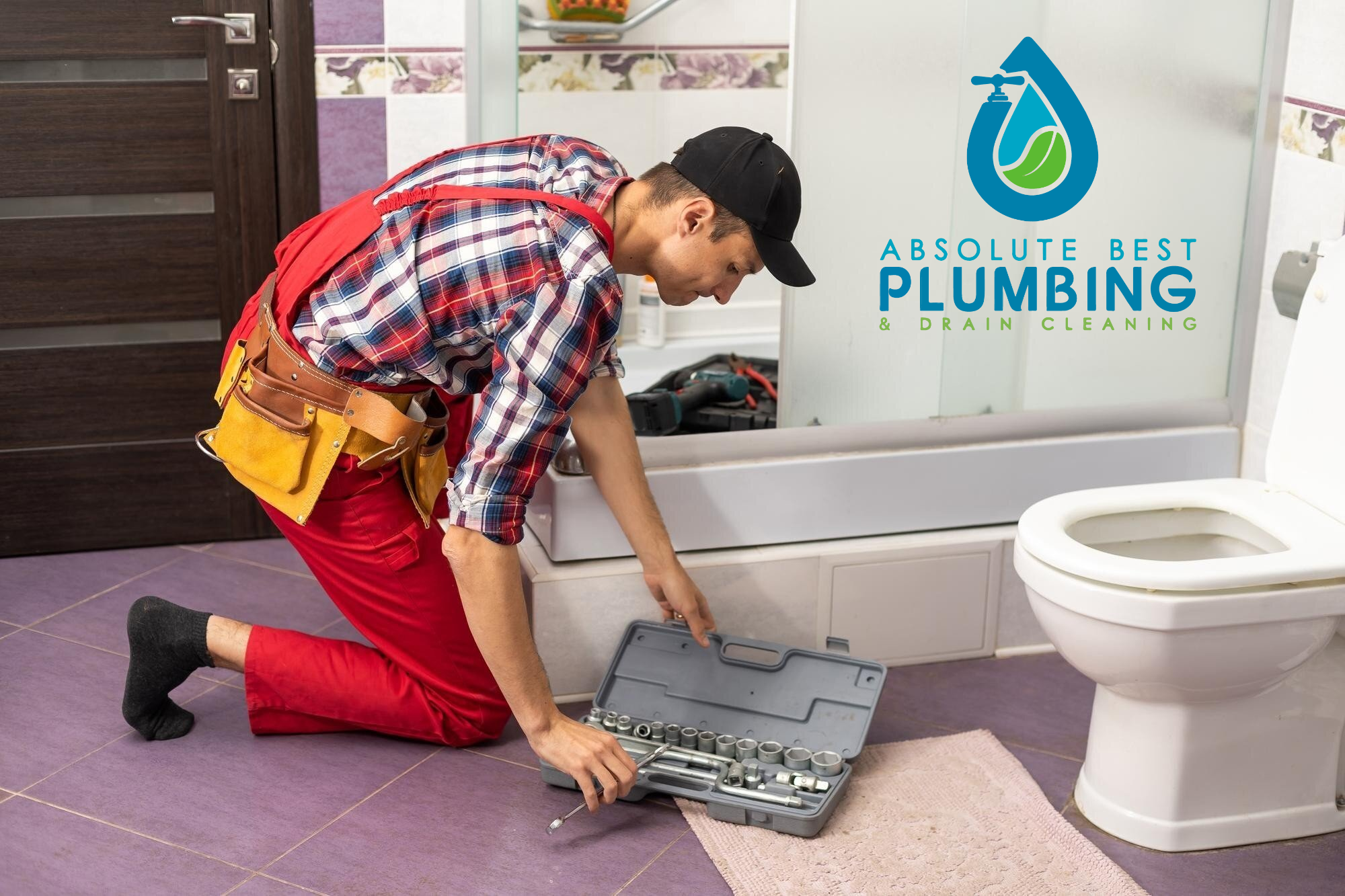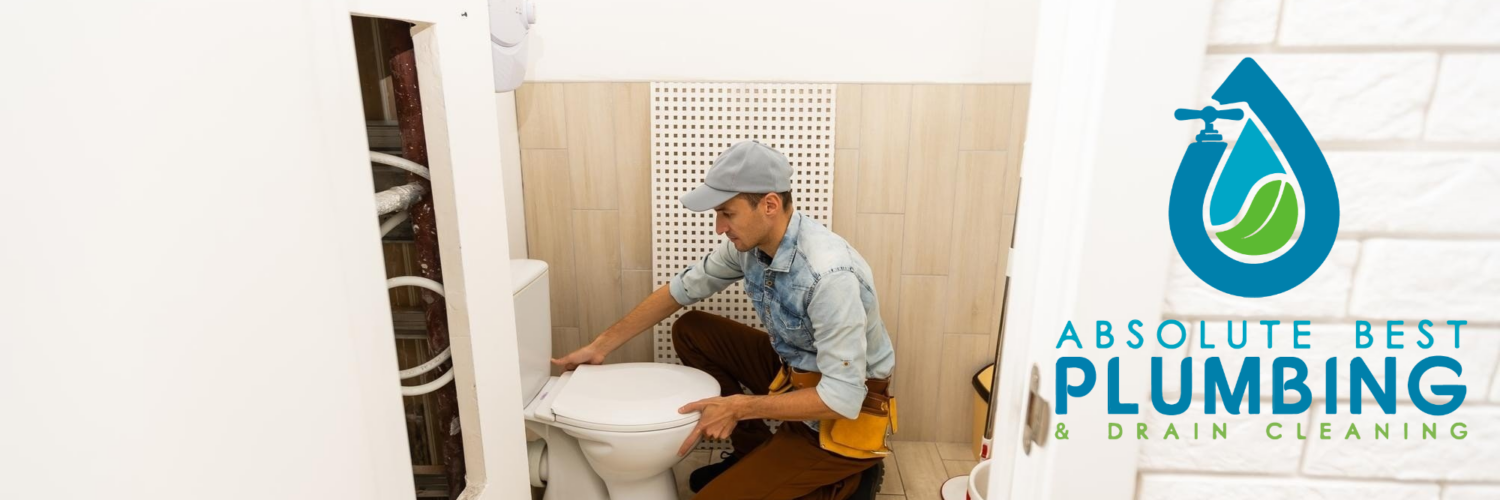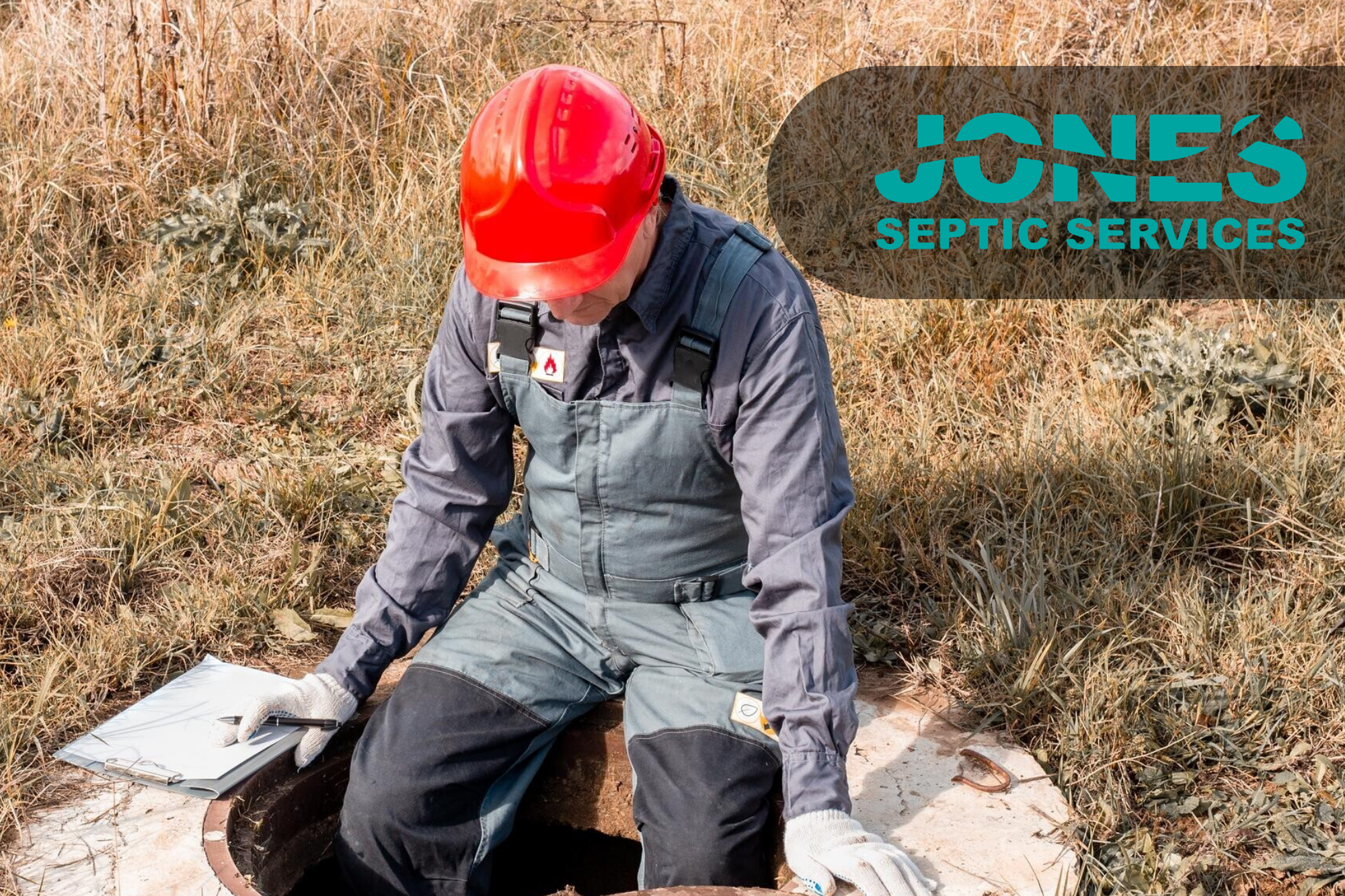Why Toilet Maintenance Matters for Property Managers
Property managers in Orlando handle a wide range of responsibilities that directly impact the safety, comfort, and satisfaction of tenants. Among HVAC systems, electrical networks, and structural upkeep, plumbing consistently ranks as one of the most urgent areas of property management. Within that category, toilets demand special attention because they are among the most used fixtures in any residential, commercial, or multi-family property. Even minor disruptions in toilet performance can quickly lead to tenant complaints, maintenance requests, or expensive repairs.
For property managers in Orlando, proper toilet maintenance goes beyond basic repairs. A well-functioning toilet system prevents clogs, backups, and leaks that could otherwise compromise tenant comfort and damage property interiors. Beyond these immediate concerns, toilet upkeep is also tied to water efficiency standards. With Florida’s unique environmental challenges and rising utility costs, ensuring toilets function at peak efficiency directly supports sustainability goals while also lowering operational expenses for property owners.
Toilet issues are often underestimated because they may start small,a running toilet, a slow flush, or a minor leak around the base. However, when left unmanaged, these seemingly minor problems can escalate into costly emergencies, from extensive water damage to sewage backups that disrupt entire buildings. This makes preventative care and routine inspections not just advisable but essential for property managers in Orlando striving to maintain tenant trust and protect long-term property value.
By recognizing the importance of proper toilet maintenance, property managers can reduce emergency calls, extend the lifespan of plumbing systems, and ensure compliance with local codes and water-saving regulations. Ultimately, this proactive approach preserves both the functionality of the property and the overall investment.
Common Toilet Issues in Managed Properties
Frequent Clogs
High-occupancy properties, such as apartment complexes, office buildings, and student housing, face a higher risk of plumbing strain simply because toilets are in constant use. With more tenants or employees relying on the same system, the likelihood of frequent clogs increases significantly. While a plunger might provide quick, temporary relief, recurring blockages often signal underlying issues such as improper flushing habits, buildup in the sewer line, or outdated piping that struggles to handle modern demands.
For property managers, these recurring clogs can quickly become more than just an inconvenience, they can disrupt daily routines, frustrate tenants, and lead to negative reviews if not handled promptly. When blockages escalate beyond routine fixes, professional clogged toilet repair services Orlando are often required to fully restore proper function and prevent damage to the larger plumbing network. Proactively scheduling inspections and educating tenants on proper toilet use can help reduce the recurrence of these costly disruptions.
Silent Leaks
Not all plumbing problems are as obvious as a clogged toilet. Silent leaks often go unnoticed for weeks or months, slowly driving up utility bills and undermining water conservation efforts. Toilets with silent leaks can waste thousands of gallons of water annually, leading to unnecessary costs for property owners. According to the EPA WaterSense program, toilet leaks remain one of the most common and costly sources of household water waste in the United States.
For property managers, detecting these leaks early is crucial. A toilet that continues running after flushing or a water line that constantly refills the tank often signals a hidden problem. Over time, silent leaks not only inflate water bills but also create long-term damage to subflooring, drywall, and structural materials due to constant moisture exposure. Addressing these issues promptly through routine inspections and timely repairs ensures compliance with water efficiency standards while protecting the property’s value.
Worn Components
Toilets are mechanical systems that depend on several small but essential parts to function properly. Flappers, fill valves, seals, and handles naturally wear down over time due to constant use, hard water conditions, or mineral buildup. In high-demand properties like multi-unit complexes, this wear and tear is accelerated, creating inefficiencies that lead to higher water usage and recurring tenant complaints.
Without proactive oversight, these worn components can trigger bigger problems. A faulty flapper, for instance, might cause a toilet to run continuously, while a deteriorating seal can lead to leaks that weaken flooring. What begins as a minor, inexpensive part replacement can easily escalate into the need for emergency plumbing services Orlando if neglected. Regular maintenance schedules, coupled with timely replacement of aging parts, not only keep tenants satisfied but also help property managers avoid costly after-hours calls and major plumbing failures.

The Cost of Neglecting Toilet Maintenance
Emergency Repairs
When routine toilet maintenance is ignored, minor plumbing issues can quickly escalate into urgent situations that demand immediate action. Overflowing toilets, backed-up sewer lines, and burst pipes not only disrupt daily life for tenants but also create hazardous conditions that require professional intervention. Emergency plumbing calls are often more costly than scheduled maintenance visits, as they involve after-hours service, specialized equipment, and rapid response times.
For property managers, repeated emergency repairs are more than just a financial burden, they can erode tenant confidence and damage the property’s reputation. Tenants who experience ongoing toilet problems are more likely to file complaints, leave negative reviews, or even choose not to renew leases. Proactive monitoring and preventative care are the most effective ways to avoid these high-stress, high-cost crises, ensuring both operational efficiency and tenant satisfaction.
Structural Water Damage
One of the most severe consequences of neglected toilet maintenance is structural water damage. When toilets overflow or develop persistent leaks, water can seep into floors, drywall, and ceilings, especially in multi-story apartment buildings or office complexes. This moisture not only weakens building materials but also creates an environment where mold and mildew can thrive, posing health risks to tenants.
Extensive water damage often requires costly remediation efforts, including mold removal, flooring replacement, and sometimes complete pipe replacement Orlando to restore safe functionality. For property managers, these repairs are disruptive, time-consuming, and can leave units uninhabitable for weeks or months. Long-term neglect also increases the likelihood of denied or complicated insurance claims, as insurers often expect proof of preventative maintenance before covering damages. The financial impact of extended vacancies and restoration expenses highlights the importance of addressing plumbing issues before they compromise the structure of the property.
Higher Utility Bills
Beyond tenant satisfaction and property preservation, poorly maintained toilets have a direct impact on operational costs. Inefficient toilets consume excessive amounts of water, leading to inflated utility bills that cut into property management budgets. According to the ENERGY STAR – Residential Water Heaters program, proper water management significantly reduces strain on heating systems while lowering energy and water expenses.
For property managers in Orlando, even small leaks or running toilets can waste thousands of gallons of water annually, resulting in unnecessary costs that accumulate month after month. By ensuring that toilets operate at peak efficiency, managers not only control utility expenses but also align with Florida’s broader push for sustainable water conservation practices. Regular inspections, timely component replacements, and the use of high-efficiency fixtures are practical steps that directly improve the bottom line while reducing environmental impact.
Preventive Toilet Maintenance Strategies for Property Managers
Routine Inspections
Routine inspections are one of the most effective ways for property managers to maintain reliable plumbing systems. Regular checks help detect early warning signs, including running toilets, weak flushes, and subtle leaks that tenants may not immediately notice. These small issues, if left unresolved, can gradually worsen and eventually require costly plumbing services Orlando.
By scheduling inspections quarterly or semi-annually, property managers create a consistent oversight system that prevents emergencies before they occur. Regular inspections also provide an opportunity to assess the overall condition of plumbing fixtures, evaluate water efficiency, and confirm compliance with local regulations. This proactive approach saves money in the long run, extends the lifespan of toilet systems, and ensures tenant comfort is never compromised.
Proactive Repairs
Plumbing systems rely on many small but essential components, such as flappers, fill valves, and seals. Over time, these parts naturally wear down due to daily use and water quality conditions. If ignored, worn components often cause larger issues such as leaks, clogs, and increased water consumption.
Proactive repairs, replacing parts before they fail, are a cost-effective strategy that property managers can integrate into their maintenance schedules. By establishing service intervals for commonly replaced components, managers reduce the likelihood of emergency calls, avoid disruptive plumbing breakdowns, and maintain tenant satisfaction. A well-structured repair program also demonstrates a property manager’s commitment to providing a safe, comfortable living or working environment, which directly supports tenant retention.
Tenant Education
Even the best-maintained plumbing system is vulnerable to misuse. Many toilet clogs are the direct result of improper flushing habits, such as disposing of wipes, paper towels, feminine products, or other non-biodegradable items. For high-occupancy properties, repeated misuse by tenants can strain the plumbing network and lead to frequent clogs and expensive service calls.
Tenant education is a simple but powerful tool for preventing these problems. Property managers who provide educational materials, signage, or digital reminders about proper toilet use can significantly reduce the number of recurring blockages. Some managers even include plumbing care guidelines in welcome packets for new tenants or send seasonal reminders to reinforce best practices. By fostering awareness, property managers not only reduce the demand for professional intervention but also encourage tenants to take part in preserving the property’s infrastructure.
The Role of Climate in Toilet Maintenance
Humidity and Pipe Strain
Florida’s humid climate presents unique challenges for property managers, particularly when it comes to maintaining plumbing systems. Constant exposure to high humidity, combined with fluctuating temperatures, causes pipes to expand and contract. Over time, this process creates small leaks, structural weaknesses, and stress on joints or seals.
Even minor weaknesses can eventually lead to recurring clogs, hidden leaks behind walls, or water damage that tenants may not immediately notice. If these issues remain unaddressed, they often escalate into costly repairs, including full water line repair service Orlando. For property managers overseeing multiple units, this means higher maintenance budgets and potential tenant dissatisfaction. Preventative measures such as insulating pipes, monitoring for condensation, and scheduling seasonal inspections are essential strategies to reduce the impact of Florida’s climate on plumbing infrastructure.
Heavy Rainfall and Sewer Pressure
Florida’s storm seasons bring heavy rainfall that significantly affects sewer systems across residential and commercial properties. Excessive rainwater can overload municipal sewer lines, creating reverse pressure that forces wastewater back into buildings. For property managers, this risk translates into potential backups, overflowing toilets, and widespread disruption for tenants.
Regular sewer inspections and preventative maintenance are crucial to managing these conditions. By working with professional plumbing services to clear blockages, reinforce vulnerable lines, and install backflow prevention devices, property managers can mitigate the risk of severe backups. Addressing these challenges before storm season not only protects properties but also demonstrates a proactive commitment to tenant safety and comfort.
Vegetation Growth and Root Intrusion
While Florida’s lush landscapes are a selling point for many properties, they also pose a hidden risk to plumbing systems. Tree roots and vegetation naturally seek out moisture, making underground sewer lines a prime target. Over time, roots infiltrate cracks in pipes, gradually expanding until they restrict or block water flow entirely.
Once root intrusion takes hold, tenants may experience recurring clogs, slow drains, or even sewage backups, issues that cannot be solved with simple plunging or routine maintenance. Instead, professional intervention is required to remove the roots and repair or replace damaged pipes. Property managers can minimize this risk by scheduling camera inspections of sewer lines, avoiding planting large trees near underground pipes, and addressing slow drains promptly before they escalate into larger failures.
Modern Solutions for Property Managers
Water-Efficient Fixtures
Upgrading to modern, water-efficient fixtures is one of the most effective strategies for property managers seeking to reduce utility costs and prevent unnecessary water waste. Unlike older toilets that can use three to five gallons per flush, today’s water-efficient toilets are engineered to deliver the same performance with a fraction of the water, often less than 1.6 gallons per flush. This makes a significant difference in high-occupancy properties, where thousands of flushes occur each week.
According to the U.S. Department of Energy – Water Heating, efficient water systems not only conserve resources but also extend appliance life and reduce overall energy demand. By lowering the volume of water that requires heating, property managers indirectly reduce strain on water heaters and other connected systems, resulting in lower operating costs and fewer breakdowns.
For multi-unit buildings in Orlando, implementing water-efficient fixtures creates measurable savings across utility bills while also aligning with Florida’s sustainability goals. Many tenants today actively value eco-friendly practices, making water conservation upgrades a competitive advantage for attracting and retaining renters. Additionally, in some cases, property owners may qualify for rebates or incentives for upgrading plumbing systems to meet efficiency standards.
By prioritizing water-efficient toilets and fixtures, property managers not only cut costs but also future-proof their properties against rising utility expenses and growing regulatory expectations for water conservation. This investment delivers both immediate financial benefits and long-term property value protection.
Scheduled Professional Services
While daily oversight and tenant education go a long way, nothing replaces the long-term value of Scheduled Professional Services. Routine maintenance performed by licensed plumbing providers ensures that toilets, pipes, and water lines remain in peak condition year-round, even under the heavy demands of multi-family properties, office buildings, or commercial complexes.
These professional services often include:
- Hydro-jetting to clear stubborn blockages and maintain clean sewer lines.
- Camera inspections that identify hidden leaks, cracks, or root intrusion before they become costly emergencies.
- Preventive cleanings that improve water flow and reduce the likelihood of recurring clogs.
- System performance assessments to ensure compliance with water-efficiency standards in Florida.
For property managers, these proactive steps reduce the likelihood of disruptive emergency calls, extend the lifespan of plumbing infrastructure, and provide peace of mind for both managers and tenants. High-occupancy properties in Orlando especially benefit from recurring services because heavy usage patterns increase wear and tear. By catching issues early, property managers can avoid expensive water line replacements, emergency interventions, and tenant dissatisfaction.
Ultimately, investing in Scheduled Professional Services is more than just a preventive measure, it’s a demonstration of commitment to property quality, operational efficiency, and tenant satisfaction. Establishing long-term partnerships with trusted plumbing professionals ensures that maintenance is handled consistently and cost-effectively, allowing property managers to focus on broader facility management goals while protecting property value.

Integrated Plumbing Management
Toilets are just one part of a much larger plumbing ecosystem. Property managers who integrate plumbing oversight into overall facility management gain long-term benefits in both cost savings and operational reliability. Rather than addressing issues piecemeal, a holistic approach ensures that toilets, sinks, water heaters, and water lines are maintained together as part of a comprehensive system.
This integrated strategy reduces the risk of overlooked problems and streamlines service schedules. For example, during routine inspections, technicians can address multiple areas in a single visit, from clogged drains to faucet repair installation Orlando and Orlando Water Heater repairs. By consolidating plumbing oversight, property managers minimize disruptions for tenants, maximize service efficiency, and ensure consistent performance across all water-related systems.
Best Practices for Long-Term Property Value
Protecting plumbing systems is not just about solving emergencies, it’s about adopting long-term strategies that safeguard property value, reduce expenses, and enhance tenant satisfaction. Property managers in Orlando can maximize efficiency and minimize risk by following these best practices:
- Conduct semi-annual plumbing inspections
Scheduling inspections twice a year allows property managers to detect hidden leaks, slow drains, and early signs of wear before they escalate. These routine checks help extend the lifespan of toilets, pipes, and water lines, while ensuring compliance with Florida’s water efficiency standards. - Establish maintenance schedules for high-use fixtures
Toilets in multi-family buildings, office complexes, and commercial spaces endure heavy daily use. Setting structured service intervals for these fixtures, such as quarterly component checks and proactive part replacements, reduces the chance of unexpected breakdowns and tenant complaints. - Replace outdated toilets with water-efficient models
Older toilets consume significantly more water per flush, contributing to higher utility bills and unnecessary waste. Upgrading to water-efficient models lowers expenses, conserves resources, and improves overall system reliability. For property managers, these upgrades also align with sustainability goals and appeal to environmentally conscious tenants. - Communicate usage guidelines with tenants to prevent misuse
Many recurring toilet clogs result from improper flushing practices, such as disposing of wipes, feminine products, or paper towels. By providing clear educational materials and reminders, property managers can reduce misuse, protect plumbing infrastructure, and minimize the need for professional intervention. - Partner with reliable plumbing providers for ongoing preventive care
Building long-term relationships with trusted plumbing professionals ensures consistent oversight and dependable service. Providers can offer preventive care such as hydro-jetting, camera inspections, and water line maintenance. This partnership allows property managers to anticipate problems, avoid costly emergencies, and maintain tenant satisfaction.
By implementing these best practices, property managers not only reduce repair expenses but also strengthen tenant trust and preserve property value for the future.
Why Property Managers Should Prioritize Toilet Maintenance
For property managers in Orlando, toilets represent far more than a basic functional necessity. They are central to tenant satisfaction, property value preservation, and the overall reliability of building infrastructure. A single neglected toilet can quickly disrupt daily routines, generate tenant complaints, and trigger costly plumbing interventions that could have been avoided with proactive care.
Neglecting toilet maintenance carries significant risks. Beyond frequent clogs and expensive repairs, poorly maintained systems contribute to wasted water, higher utility bills, and even structural damage from hidden leaks or recurring overflows. These issues not only strain budgets but can also harm the reputation of a property, leading to tenant turnover and long-term financial losses.
By adopting preventive strategies such as semi-annual inspections, proactive repairs, and scheduled professional services, property managers reduce emergency calls and extend the lifespan of their plumbing systems. Staying aware of climate-related challenges unique to Florida, such as humidity, heavy rainfall, and root intrusion, also allows managers to anticipate potential issues before they escalate.
Ultimately, prioritizing toilet maintenance is about safeguarding investments. With the right combination of water-efficient fixtures, consistent tenant education, and reliable partnerships with plumbing providers, property managers can ensure their properties remain efficient, safe, and cost-effective. This proactive approach not only enhances tenant satisfaction today but also protects the long-term value and sustainability of the property for years to come.





